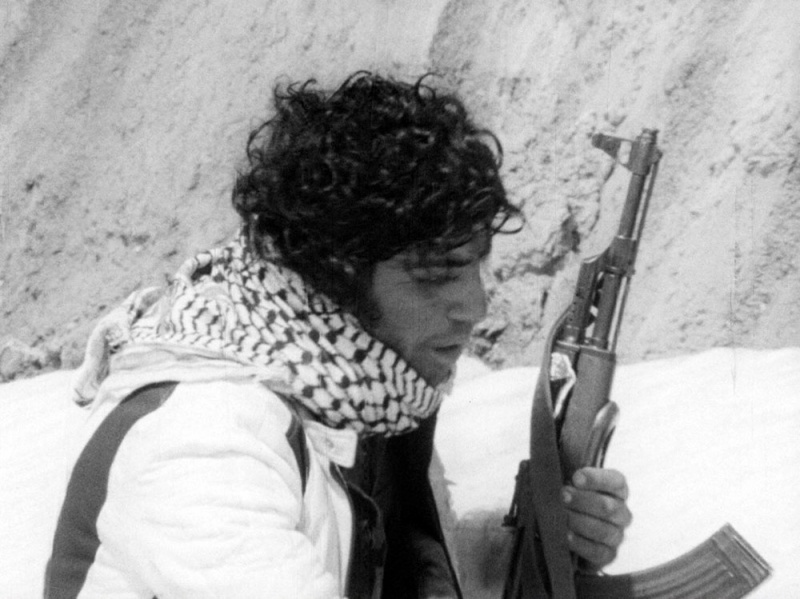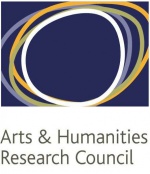This website is an archive. Please visit www.ica.art for current listings.
Cinema of the Palestinian Revolution
1 Dec 2018 – 9 Dec 2018
During the 1982 invasion of Lebanon, the Israeli military destroyed the Palestinian Film Unit archive and stole its contents. Access is still controlled by the Israeli military and denied to Palestinians. Recently restored to pristine quality, this programme of five films from Palestine’s revolutionary era is presented by the London Palestine Film Festival in partnership with the ICA.
This screening is the product of filmmakers and creative practitioners working to restore and exhibit Palestinian films from ‘the long 1970s’, including Azza El-Hassan, Dr Bashar Shammout and Kassem Hawal, with Dr Anandi Ramamurthy of Sheffield Hallam University supporting the process, as the lead investigator of Creative Interruptions’ Palestinian strand.
Creative Interruptions explores the artistic expressions of disenfranchised communities that challenge power, and aims to bring attention to the plunder of cultural artefacts by the Israeli military and to put those artefacts into wider circulation.
Programme
The Flower of All Cities (Zahrat Al-Madain), Dir. Ali Siam, 1969, Palestine, 7 mins, Arabic with English subtitles
This rare example of the work of photographer, cinematographer and founding father of Palestinian Cinema, Hani Jawharieh (1939–76), was restored by filmmaker Azza El-Hassan, who found the film in Jawharieh’s family home. The film presents a picture of harmonious Palestinian civil life disturbed by the Israeli army’s occupation following the 1967 war. Although essentially a propaganda film by the Jordanian Ministry of Culture, Siam captures how Palestinians and Arabs viewed Jerusalem, and their rage at the Israeli occupation.
Palestine in the Eye, Dir. PLO Film Unit/Mustafa Abu Ali, 1976, Palestine, 28 mins, Arabic with English subtitles
Interviews with Palestinian filmmakers, family and colleagues document the impact of cinematographer Hani Jawharieh’s death on the PLO Film Unit. Palestine in the Eye elaborates the Film Unit’s workings and its international connections. Although later attributed to Mustafa Abu Ali, the Film Unit’s practice was to describe itself as a collective of ‘workers’: the credits are a non-hierarchical list of those who participated. The film was restored by filmmaker Azza El-Hassan, who found the film in Hani Jawharieh’s family home.
The Urgent Call of Palestine, Dir. Ismail Shammout, 1973, Palestine, 5 mins, Arabic with English subtitles
Primarily known as a painter, Ismail Shammout also served as the PLO’s Director of the Cultural Arts Section and worked with the Film Unit during the 1970s. In this short work, Shammout records a solidarity song by the Palestinian-Egyptian singer Zeinab Shaath. The song, and the words of Kamal Nasser that break through the ballad, continue to hold striking relevance, with lyrics by Lalitha Punjabi. Dr Bashar Shammout, an expert in Palestinian audio-visual heritage, restored his father’s own film.
Glow of Memories, Dir. Ismail Shammout, 1972, Palestine, 12 mins, Arabic with English subtitles
An elderly Palestinian man is at the centre of this film, which unravels his recollections using archival photographs and Shammout’s own painting. Adopting a style used by early Soviet filmmakers who wished to communicate across language boundaries, a montage of visuals and sounds creates a non-verbal narrative of Palestinian experience and resistance. The film screened at several festivals in the former Soviet Union and was awarded a prize in 1973. Restored by Dr Bashar Shammout, an expert in Palestinian audio-visual heritage.
Palestinian Identity, Dir. Kassem Hawal, 1984, Palestine, 40 mins, Arabic with English subtitles
Palestinian determination to flourish artistically and resist cultural genocide are the heart of this film. Made after the Israeli departure from Beirut following the 1982 invasion, Hawal documents the destruction of cultural and educational centres from which the Israeli army disappeared films, photographs and historical and contemporary manuscripts. Interviews with Mahmoud Darwish, Ismail Shammout and those in charge of cultural and educational centres such as Anni Kanafani, offer a sophisticated analysis of why Israel focused on the destruction of Palestinian culture. The film was restored by its director, Kassem Hawal, one of the few members of the Palestinian Film Institute who is still living.tically and resist attempts at cultural genocide.
This programme is presented in partnership with the London Palestine Film Festival.







